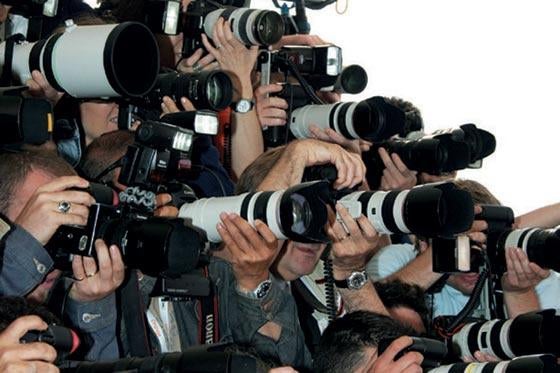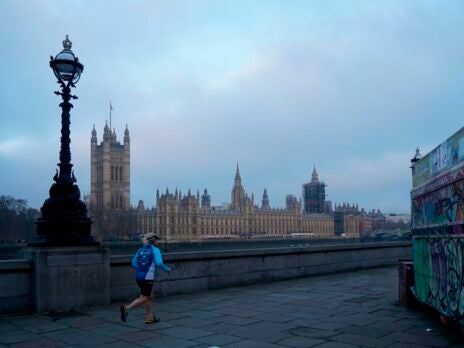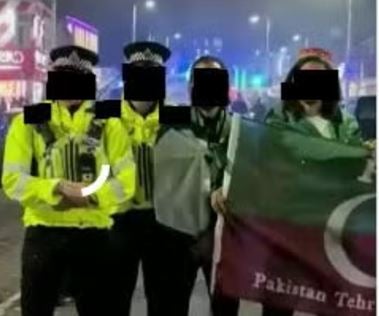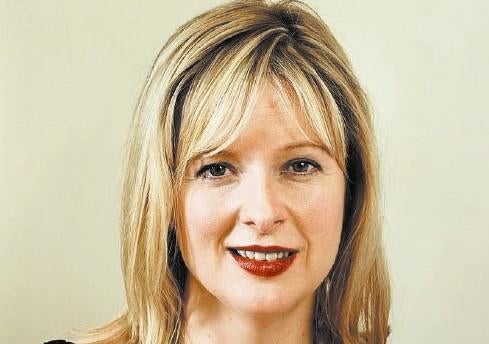
Hundreds of photographers protested outside Scotland Yard in London this morning as a new law which they claim restricts their freedom came into force.
From today, under section 76 of the Counter-Terrorism Act 2008, “eliciting, publishing or communicating information on members of the armed forces, intelligence services and police officers which is likely to be useful to a person committing or preparing an act of terrorism” will carry a maximum prison sentence of 10 years.
Photographers fear police will use the law to prevent lawful pictures of protests being taken.
To mark the law, at least 300 photographers gathered outside Scotland Yard to “exercise their democratic right – and take pictures”.
The police officers present were repeatedly photographed, but took the protest in good spirit.
Some photographers wore masks and fancy dress, while others wore stickers that said: “I am a photographer – not a terrorist.”
Comedian Mark Thomas was at the protest and told Press Gazette: “I am an NUJ member and a citizen – that’s why I’m here.
“The greater threat isn’t photographers – it’s police breaking the law at protests, denying citizens of their rights.”
David Hoffman, a photographer with 32 years’ experience, said he now carries shinpads in his bag, claiming he had been kicked by police officers at protests.
“The police today have been beautiful – but that isn’t always the case,” he said.
“Recent protests have been very bad. The worst was October last year, at the Climate Rush demo.
“One copper spent his time kicking my leg. Stood there with his steel toe caps kicking away – and me, a silver-haired man. I’ve still got chunks missing from my legs five months on.
“They want you to think: I won’t cover it next time. They have been using FIT [Forward Intelligence Teams, who use cameras], they have been using intimidation.
“They have been beautiful today, but it’s the individual officer who’s on his own at a back-street anti-fur protest. He’s less accountable.
“It’s important the police know they’re being watched and observed. If you don’t see what’s going on, your society’s less democratic.
“When I started, photographers were seen as representatives of the press, an important part of a public event. But over the last 30 years that has deteriorated.
“They’re using the law as an excuse to stop photographers when, politically, they don’t want coverage.
“Animal rights protests, peace marches, of course the poll tax – police are simply saying: We don’t want this in the paper.”
Marc Vallee, protest co-organiser and a photographer well-known for covering protests, said: “This has been amazing.
“Photographers are fed up with the way they have been treated for the last few years.
“They are trying to do their job in a professional way and the counter-terrorism laws are being used against them.
“I have had colleagues that have come out of the tube station to cover a protest, with press card, and officers have come across and said: I’m stopping you under section 44 [stop and search powers].
“What is that doing for press freedom?”
When it was suggested police would not use the law to prevent lawful photography, Vallee said: “It would be wonderful if that were the case – but that hasn’t been the case.
“They have given us reassurances, and I would he happy if they were right – but history suggests they won’t be.”
Email pged@pressgazette.co.uk to point out mistakes, provide story tips or send in a letter for publication on our "Letters Page" blog




